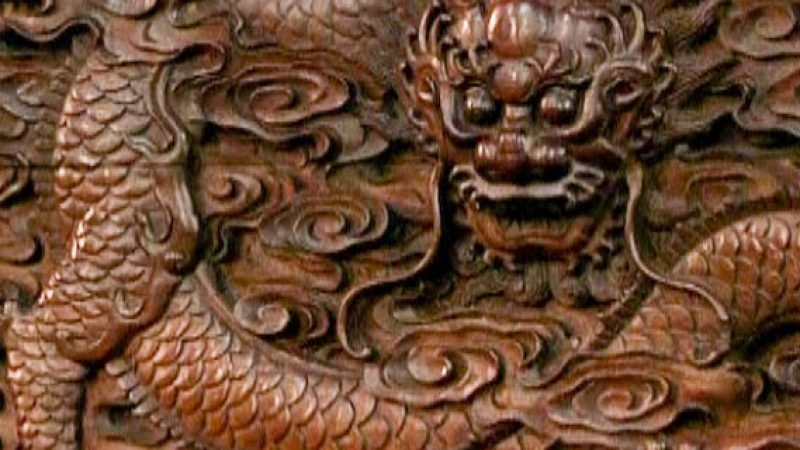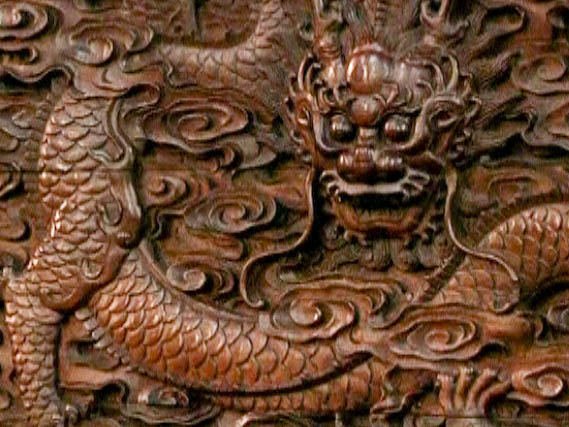
Hong Kong: Dragon Throne Breaks Record in Auction

A rare Chinese emperor’s dragon throne was sold for eleven million U.S. dollars at Sotheby’s auction sale in Hong Kong. This crushed the previous record for Chinese furniture which stands at four and a half million U.S. dollars.
After lively bidding, the piece was sold to a Shanghai-based Chinese buyer.
The throne is an imperial carved dragon throne from the Qing Dynasty’s Qianlong period.
There was a lot of interest for the throne, especially from mainland Chinese buyers.
[Nicholas Chow, Sotheby’s International]:
„Actually since we began our exhibition three to four days ago, there’s been an incredible amount of interest for the throne because it’s the finest piece of Chinese furniture to come on the market for decades. What was very clear today was the dominance of mainland Chinese bidding in this room.“
The Shanghai collector also snapped up the second highest selling item — a white dragon moon flask from the same period for nearly five million U.S. dollars.
The throne is crafted from precious zitan wood, and elaborately carved with a five dragon motif symbolizing the emperor.
The uniqueness of the throne, and the relative scarcity of such high-end Chinese furniture with solid provenance contributed to its high price.
[Nicholas Chow, Sotheby’s International]:
„And of course it’s an incredibly powerful statement of power. It’s the place from where the emperor conducted his stately affairs and received his envoys.”
The Chinese art market has been hit by the financial crisis — but traditional Chinese items have fared better than contemporary Chinese art.
 (NTDTV)
(NTDTV)


![SPD-Bundesparteitag: Reden von Scholz und Klingbeil zur bevorstehenden Wahl [Livestream]](https://images-de.epochtimes.de/uploads/2025/01/Thumb-SPD-Bundesparteitag-v2-400x225.jpg)
























vielen Dank, dass Sie unseren Kommentar-Bereich nutzen.
Bitte verzichten Sie auf Unterstellungen, Schimpfworte, aggressive Formulierungen und Werbe-Links. Solche Kommentare werden wir nicht veröffentlichen. Dies umfasst ebenso abschweifende Kommentare, die keinen konkreten Bezug zum jeweiligen Artikel haben. Viele Kommentare waren bisher schon anregend und auf die Themen bezogen. Wir bitten Sie um eine Qualität, die den Artikeln entspricht, so haben wir alle etwas davon.
Da wir die Verantwortung für jeden veröffentlichten Kommentar tragen, geben wir Kommentare erst nach einer Prüfung frei. Je nach Aufkommen kann es deswegen zu zeitlichen Verzögerungen kommen.
Ihre Epoch Times - Redaktion